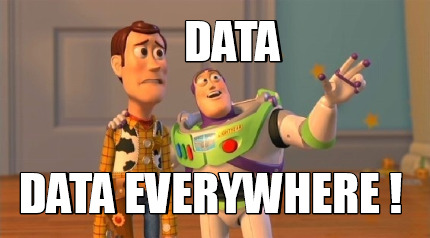What’s often reflected is a version of reality … not the reality that a person would perceive without the mirrors.

21 October 2021 (Milos, Greece) – So this morning, over my first coffee, I took a quick dip into my unedited, raw social media firehouse (about 500 daily items raw, about 40 daily when I use my curation API), and spotted this piece from the Japan Times: “China Isn’t the AI Juggernaut the West Fears.” The main idea is to counter the story that China has cornered smart software applications and innovation. Therefore, the future — at least some of it — is not firmly in the grip of the Chinese Communist Party.
My hunch is this Japan Times piece is a response to this Gizmodo article (and ones like it): “Former Senior Pentagon Official Says China is Kicking Our Ass in Artificial Intelligence.”
As I have noted before, so much of what we read is actually paid, sponsored content (non-disclosed) so you need to do a bit of a think on everything you read. Except my posts, of course.
In that Gizmodo piece, Nicolas Chaillan, a former Pentagon official, suggested that China is making significant progress in AI. If China continues on its present path, that country may surpass the US and its allies in smart software. I discussed the article with a cross-section of my military intel and cyber contacts (both in and out of government) and all agreed with Chaillan’s viewpoint.
There are a few (not many) different viewpoints zooming around the interwebs. The Japan Times’ take (which channels a few Bloomberg articles) includes this statement:
On paper, the U.S. and China appear neck and neck in artificial intelligence. China leads in the share of journal citations — helped by the fact that it also publishes more — while the U.S. is far ahead in the more qualitative metric of cited conference papers, according to a recent report compiled by Stanford University. So while the world’s most populous country is an AI superpower, investors and China watchers shouldn’t put too much stock in the notion that its position is unassailable or that the U.S. is weaker. By miscalculating the others’ abilities, both superpowers risk overestimating their adversary’s strengths and overcompensating in a way that could lead to a Cold War-style AI arms race.
Yep, one of my favorites: citation analysis. I don’t have a dog in this fight so I want to point out that citation analysis, like patent documents, may not quite tell a comprehensive story. As I have noted before, citation analysis is easily distorted by the search engine optimization techniques used by many academics and government-funded researchers. In addition, the publication flow from what I call the “AI cabals” – loose federations of like minded researchers who cross cite one another which provides a fun house mirror opportunity.
That is, what’s reflected is a version of reality, not the reality that a person like myself would perceive without the mirrors.
Net net: I think the Japan Times’ write up is off the mark. As a result, the view point of Nicolas Chaillan warrants the serious consideration.